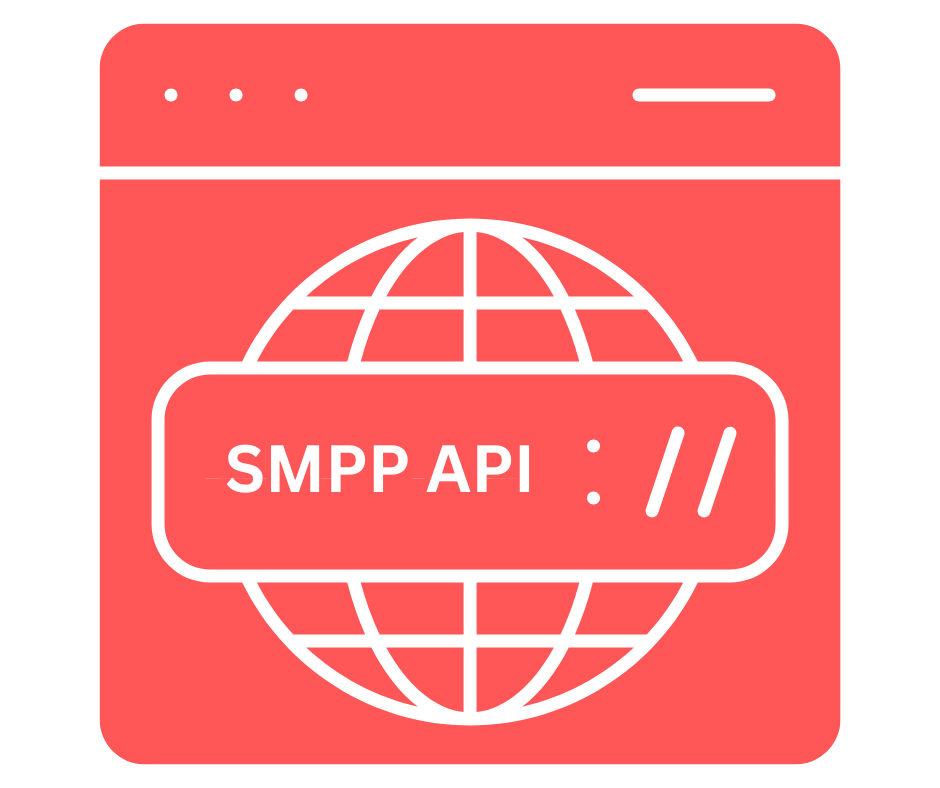SMPP API vs HTTPS API: What’s Better For SMS?
SMS APIs are a vital component of mobile marketing. With the help of SMS APIs, businesses can send personalized and targeted messages to their customers.
This method of communication is not only cost-effective but also has a higher open and response rate than other marketing channels.
SMS APIs allow businesses to automate their messaging campaigns, schedule messages, and track their real-time performance.
Moreover, SMS APIs provide a secure and reliable way to send messages, ensuring they are delivered to the right recipients.
With the increasing use of mobile devices, SMS APIs have become an essential tool for businesses to engage with their customers and drive sales.
SMPP API
SMPP, or Short Message Peer-to-Peer, is a protocol used for exchanging SMS messages between SMSCs (Short Message Service Centers) and ESMEs (External Short Messaging Entities). Essentially, it allows for the delivery of SMS messages in real time.
One of the key advantages of using SMPP for SMS is its reliability. The protocol is designed to handle high message volumes without any loss of data. It also offers a high level of security, as messages are encrypted during transmission.
However, there are also some downsides to using SMPP. For one, it can be more complex to set up and maintain than other SMS protocols, such as HTTP.

Additionally, SMPP can be more expensive to use, as it typically requires a dedicated server and an SMPP service provider.
Despite these drawbacks, there are certain use cases where SMPP is the better choice.
For example, businesses that need to send high volumes of SMS messages in real-time, such as financial institutions or emergency services, may find that SMPP is the most reliable and secure option.
Similarly, businesses that require strict control over message delivery, such as those in the healthcare industry, may also prefer to use SMPP.
HTTP API
Firstly, let me provide you with a comprehensive definition and explanation of HTTPS. HTTPS, also known as Hypertext Transfer Protocol Secure, is a protocol used to secure communications over the Internet.
It is a combination of HTTP and SSL/TLS protocols, which encrypts data that is exchanged between the server and the client.
HTTPS ensures that the data is secure and not tampered with during the transmission process. When it comes to SMS, there are both pros and cons of using HTTPS.
One of the pros is that HTTPS ensures the confidentiality and integrity of the data being transmitted, which is particularly important when it comes to sensitive information such as passwords, authentication codes, and financial transactions.
However, one of the cons of using HTTPS is that it can slow down the delivery of SMS, which may not be ideal for time-sensitive messages.

Despite the potential slowdown, there are certain use cases where HTTPS is the better choice.
For instance, when transmitting confidential information such as personal identification numbers (PINs), credit card details, or social security numbers, HTTPS provides an extra layer of security that helps prevent unauthorized access.
Additionally, HTTPS is also recommended for websites that require user logins, as it helps protect against phishing attacks and other malicious activities.
Comparison of SMPP and HTTPS APIs
When it comes to communication protocols between applications, two of the most commonly used options are SMPP and HTTPS APIs.
Both offer distinct features, functionality, and performance that make them popular choices in specific scenarios. To make the best choice for your needs, it’s important to compare these two APIs across different dimensions.
| SMPP | HTTPS |
| SMPP is a protocol that is specifically designed for sending and receiving SMS messages. | HTTPS is a more general-purpose protocol that can be used for a wide range of applications beyond SMS messaging and offers a different set of features and functionality. |
| SMPP is known for its low latency and high throughput, which makes it a great choice for high-volume SMS messaging applications. | HTTPS, on the other hand, is more suitable for applications where real-time performance is not a critical requirement. |
| SMPP typically comes with higher upfront costs but can offer cost savings in the long term due to its lower message delivery costs. | HTTPS, on the other hand, is often more affordable in the short term but can become more expensive in the long run due to its higher message delivery costs. |
Security is a critical concern when it comes to any communication protocol. Both SMPP and HTTPS offer different levels of security features and encryption options, and it’s important to assess these options in light of your specific security requirements.
In conclusion, when choosing between SMPP and HTTPS APIs, it’s important to consider factors such as features, performance, cost, and security, and choose the API that best meets your specific needs and requirements.

